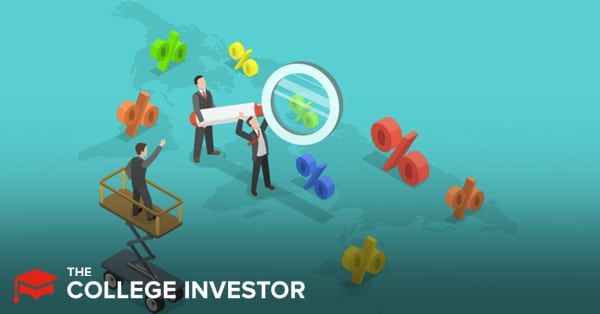
The Federal Reserve Bank (Fed) uses a variety of tools to manipulate unemployment, inflation and other economic cycles.
But of all the financial instruments at its disposal, the Fed's ability to raise or lower interest rate levels may be the most influential. And it's certainly the Fed monetary policy that's the most discussed by the media and public at large.
The Federal Funds Rate was at near zero in March 2020 when the Covid-pandemic and widespread lockdowns first began to cause a financial crisis. Now, the Fed has been raising interest rates for the last year, and while the rate increases are potentially slowing, they're not stopping. But that could change depending on how the economy fares in the proceeding months.
Why does it matter if the Fed raises interest rates? How could it affect inflation, saving account interest rates, mortgages, and other types of financial products? Here's what you need to know.
Understanding Economic Cycles
Economies are subject to boom and bust cycles. Economies grow and grow until an event happens, which triggers a bust, and then the cycle repeats. These can be mild or severe, as was the case in 2007/2008 with the Great Financial Crisis (GFC). To understand why it matters if the Fed raises interest rates, let’s first look at what causes economies to expand and contract.
An expanding economy is one that is growing. In an expanding economy, jobs are being added (unemployment is decreasing), people are spending, and GDP is increasing. At some point, the economy inevitably peaks and growth begins to slow. Slowing growth doesn’t mean the economy has gone into reverse. It means that there's still growth, but the rate of change from month to month or quarter to quarter is decreasing.
When an economy peaks, consumers have reached their maximum spending and GDP is essentially flat. The economy is no longer expanding. Within the economy, businesses will likely have raised prices as much as possible (i.e., demand has leveled off). And as consumer demand begins to decline due to high prices, prices will eventually decline as well.
At the same time, businesses may start laying off employees because of a lack of demand. During this phase, the economy is said to be in a contraction and potentially going into recession. Eventually, the economy will bottom (i.e., trough) and then begin expanding again.
These cycles are normal for any economy. However, cycles can overshoot, which leads to very high inflation. On the flip side, they can undershoot which leads to a recession or even depression.
The History Of The Fed
The United States didn’t always have a Federal Reserve Bank. Before 1913, the reluctance to create a central bank was due to fear of consolidated power. Instead of a central bank, cities had bank associations called clearinghouses. Also, the country was on the National Banking System from 1863-1913, which was a decentralized coalition of banks.
But the economy has experienced significant stock market panics throughout the United States history, sometimes followed by economic busts. Some notable stock market panics that led to a decline in economic activity or even a recession were the panics of 1819, 1837, 1857, 1873, and 1893.
The straw that broke the camel’s back was the panic of 1907. During that year, The Knickerbocker Trust Company went bankrupt. Panic ensued as bank runs spread across the country. However, people weren’t able to withdraw their savings because banks didn’t have any money.
During this period, the stock market fell 50% from its peak. There wasn’t a depression following the panic. But some businesses were liquidated. The stock market had recovered nearly all of its loss one year later. It was JP Morgan who led the financial system back to stability.
However, the country knew it could not depend on a wealthy financier every time there was a panic. This led to the creation of the Federal Reserve in 1913. It was composed of 12 Federal Reserve banks and meant to counter the ups and downs of the economy while also limiting inflation.
The Fed's Role
Since 1977, the Federal Reserve has operated under a dual mandate from Congress. It is charged with promoting maximum employment and stable prices (i.e. controlling inflation).
How has the Fed done its job? Well, we did have the Great Depression in the early 1930s. But to its credit, the Fed was successful in clamping down on runaway inflation in the late 1970s. Many say the Fed saved the U.S. financial system from collapse during the Great Financial Crisis (GFC).
Starting with the GFC, we see the Fed using quantitative easing for virtually every economic crisis going forward. And, yes, that certainly includes the coronavirus crisis that the U.S. (and the world) is currently in the midst of.
Why The Fed Raises Or Lowers Rates
When the economy is overheating, the Fed raises interest rates to slow it down. An overheating economy is at full employment, experiencing increasing inflation and growing GDP.
One of the key factors in an overheating economy is easy credit. If credit is too loose, people and business can spend money easily. And that means businesses and individuals are often tempted to take on too much debt. Inflation can get out of control as well - when there's a lot of money floating around, prices rise because everyone knows they can charge more (due to all the money floating around).
When the Fed raises interest rates, borrowing slows down (because it's more expensive to borrow). This trickles into the economy as credit contracts. It also has the effect of reducing inflation. Less spending means companies will be forced to stop raising prices, or in some cases lower prices to compete.
Increasing interest rates leads to a slowing economy but it can also result in a recession.
On the other side of the coin, the Fed will lower interest rates to stimulate economic growth. Reduced interest rates expand credit as businesses can borrow at lower rates.
Is The Economy Ready For a Higher Fed Rate?
There’s a lot of debate if the economy is strong and can maintain its growth or fragile.
Inflation is at all-time highs and the unemployment rate is near all-time lows. The Fed has been raising rates for a year, and now we're seeing the "extra" money being pumped out of the economy through higher mortgage rates and borrowing rates.
But at the same time, consumer spending doesn't seem to be slowing down much. The Fed seems to be stuck between a rock and a hard place.
Potential Impacts If The Fed Raises Interest Rates
In the current economy, what could raising rates mean for businesses and individuals? First, raising interest rates will curtail lending. As previously mentioned, a decline in lending can also start to slow down an economy.
Mortgage rates are higher today than they've been - but they're not much higher than they were near 2008 Great Financial Crisis. And they're well below the peak they saw in the 1980s.
Raising interest rates will increase mortgage rates and slow the rate of increase in house prices (hopefully). But housing also has a huge supply problem - there simply aren't enough houses to meet demand, so that may keep prices high even in a rising rate environment.
Looking at the other side of the rate-raising argument, inflation is still high. When the Fed raises rates, inflation tends to slow down since borrowing declines. And when fewer individuals and businesses are receiving financing, this works to reduce the amount of money being injected into the economy.
When the annual inflation rate is lower than the average wage increase, the cost-of-living becomes more affordable. And that makes it easier for individuals and families to cover their core needs as well as save up for future goals.
Speaking of saving, a higher Federal Funds Rates will also mean higher interest rates on savings accounts and certificates of deposit (CDs). Before the pandemic, it wasn't unusual for some high-yield savings accounts to offer APYs above 2%. Now, we're seeing savings accounts over 5%.
Final Thoughts
So what will the Fed do? The general consensus is that it will continue to raise rates, but at a slower pace than it has been.
Ultimately, the Fed's decision to raise rates or leave them alone will mainly depend on where unemployment and the economy are at the time. If the economy is still strong and inflation isn't waning, rate hikes will continue. But if growth has gone into reverse by then, it's likely that the Fed's bond-buying program will return and rates will decline.

Robert Farrington is America’s Millennial Money Expert® and America’s Student Loan Debt Expert™, and the founder of The College Investor, a personal finance site dedicated to helping millennials escape student loan debt to start investing and building wealth for the future. You can learn more about him on the About Page or on his personal site RobertFarrington.com.
He regularly writes about investing, student loan debt, and general personal finance topics geared toward anyone wanting to earn more, get out of debt, and start building wealth for the future.
He has been quoted in major publications, including the New York Times, Wall Street Journal, Washington Post, ABC, NBC, Today, and more. He is also a regular contributor to Forbes.
Editor: Clint Proctor Reviewed by: Claire Tak
